Blog
Understanding the Types of Arthritis
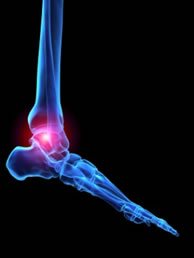 Arthritis is a condition that many people are familiar with but that not many fully understand. Successful treatment of the condition depends on the correct diagnosis, and arthritis can take on three different types: osteoarthritis, rheumatoid arthritis, and psoriatic arthritis. Each type of arthritis has its own various symptoms and treatments. If you are suffering from arthritis in your feet, consult with your podiatrist to determine the right diagnosis and the best treatment.
Arthritis is a condition that many people are familiar with but that not many fully understand. Successful treatment of the condition depends on the correct diagnosis, and arthritis can take on three different types: osteoarthritis, rheumatoid arthritis, and psoriatic arthritis. Each type of arthritis has its own various symptoms and treatments. If you are suffering from arthritis in your feet, consult with your podiatrist to determine the right diagnosis and the best treatment.
Arthritis can be a difficult condition to live with. If you are seeking treatment, contact one of our podiatrists of University Foot and Ankle Center, L.L.C. Our doctors can provide the care you need to keep you pain-free and on your feet.
Arthritic Foot Care
Arthritis is a joint disorder that involves inflammation of different joints in your body, such as in your feet. Arthritis is often caused by a degenerative joint disease and causes mild to severe pain in all affected areas. On top of this, swelling and stiffness in the affected joints can also be a common symptom of arthritis.
In many cases, wearing ill-fitting shoes can worsen the effects and pain of arthritis. Wearing shoes that have a lower heel and extra room can help your feet feel more comfortable. In cases of rheumatoid arthritis, the arch in your foot may become problematic. Buying shoes with proper arch support that contour to your feet can help immensely.
Alleviating Arthritic Pain
- Exercises that stretch the foot can prevent further pain and injury and increase mobility
- Most of the pain can be alleviated with anti-inflammatory drugs, heat, and topical medications
- Massages can help to temporarily alleviate pain.
It is best to see your doctor for the treatment that is right for your needs and symptoms. Conditions vary, and a podiatrist can help you determine the right method of care for your feet.
If you have any questions please contact our offices located in East Brunswick and Monroe Township, NJ. We offer the newest diagnostic and treatment technologies for all your foot and ankle needs.
Running Offers Both Benefits and Risks
 Running is a great exercise for our body, as it improves our cardiovascular health, increases our metabolism and can build up our muscles. However, running also poses a risk of injury, especially if you engage in running as a strenuous exercise. Protect your feet before running by stretching before and after, as this improves your circulation, relieves stiffness, and prevents strains. Proper running shoes also play a large part in ensuring the comfort, flexibility, and support for your feet. The type of surface you’re running on can also either increase or decrease your risk of injury. Hard, uneven surfaces can lead to more shock absorption as we run, increasing the risk of stress fractures, slips, and falls. Softer ground, such as grass, are safer for the feet. Avoid running while it is raining, as wetter ground can lead to a greater chance of slipping. Listen to your feet if you feel any pain and see your podiatrist.
Running is a great exercise for our body, as it improves our cardiovascular health, increases our metabolism and can build up our muscles. However, running also poses a risk of injury, especially if you engage in running as a strenuous exercise. Protect your feet before running by stretching before and after, as this improves your circulation, relieves stiffness, and prevents strains. Proper running shoes also play a large part in ensuring the comfort, flexibility, and support for your feet. The type of surface you’re running on can also either increase or decrease your risk of injury. Hard, uneven surfaces can lead to more shock absorption as we run, increasing the risk of stress fractures, slips, and falls. Softer ground, such as grass, are safer for the feet. Avoid running while it is raining, as wetter ground can lead to a greater chance of slipping. Listen to your feet if you feel any pain and see your podiatrist.
Runners can still be prone to running injuries even with proper precautions. If you are suffering from a running injury, contact one of our podiatrists of University Foot and Ankle Center, L.L.C. Our doctors can provide the care you need to keep you pain-free and on your feet.
How to Prevent Running Injuries
Many common running injuries are caused by overuse and overtraining. When the back of the kneecap starts wearing out and starts causing pain in your knee, this is commonly referred to as runner’s knee. Runner’s knee is a decrease in strength in your quadriceps and can occur if you’re not wearing properly fitted or supporting shoes. To prevent runner’s knee, focusing on hip strengthening is a good idea, as well as strengthening your quads to keep the kneecaps aligned.
What Are Some Causes of Running Injuries?
- One cause of a common running injury is called iliotibial band syndrome.
- Plantar fasciitis is also another common injury.
- Stress fractures can occur from overtraining, lack of calcium, or even your running style.
Best Ways to Prevent Running Injuries
- Wear footwear that fits properly and suits your running needs.
- Running shoes are the only protective gear that runners have to safeguard them from injury.
- Make a training schedule. Adding strengthening exercises as well as regular stretching can help keep you strong and limber and can lessen the possibility of injuries.
- Stretching keeps muscles limber, this will help you gain better flexibility.
If you have any questions, please feel free to contact our offices located in East Brunswick and Monroe Township, NJ. We offer the newest diagnostic tools and technology to treat your foot and ankle needs.
Read more about How to Prevent Running Injuries
Be Sure to Wear Shoes That Fit Properly
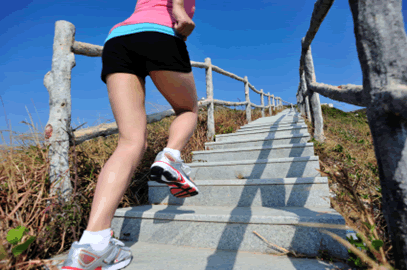 Before buying shoes online, make sure to go in person to have the shoes fitted properly. Finding the right shoes includes taking into consideration the correct length and width of your feet. Our feet are prone to growing wider as we age, especially as we spend more time walking and standing. If you like a specific shoe brand and prefer to shop online, it is recommended to choose shoes directly from the brand’s website. However, having your feet fitted in person, particularly with a specialist, can determine the best fit for your feet.
Before buying shoes online, make sure to go in person to have the shoes fitted properly. Finding the right shoes includes taking into consideration the correct length and width of your feet. Our feet are prone to growing wider as we age, especially as we spend more time walking and standing. If you like a specific shoe brand and prefer to shop online, it is recommended to choose shoes directly from the brand’s website. However, having your feet fitted in person, particularly with a specialist, can determine the best fit for your feet.
If you are a runner, wearing the right running shoe is essential. For more information, contact one of our podiatrists of University Foot and Ankle Center, L.L.C. Our doctors can provide the care you need to keep you pain-free and on your feet.
Choosing the Right Running Shoe for Your Foot Type
To increase performance and avoid the risk of injury, it is important to choose the right running shoe based on your foot type. The general design of running shoes revolves around pronation, which is how the ankle rolls from outside to inside when the foot strikes the ground.
- Neutral runners are able to choose from a wide variety of shoes, including minimalist shoes or even go barefoot
- Runners who overpronate, or experience an over-abundance of ankle rolling, should choose shoes that provide extra motion control and stability
- Runners who underpronate, or supinate, have feet that have high arches and lack flexibility, preventing shock absorption. They require shoes with more flexibility and cushion
If you have any questions, please feel free to contact our offices located in East Brunswick and Monroe Township, NJ. We offer the newest diagnostic tools and technology to treat your foot and ankle needs.
Benefits of Custom Orthotics
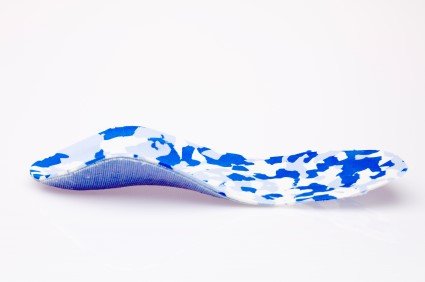 Custom orthotics are foot devices that are inserted into your shoes to help accommodate and treat your foot conditions. Orthotics provide support for the arches of your feet, distributing pressure more evenly across the feet and helping to relieve pain in target areas, depending on your condition. Creating orthotics involves using a plaster casting based on the patient’s foot shape. Your doctor or physical therapist will properly customize your orthotics to fit your specific feet.
Custom orthotics are foot devices that are inserted into your shoes to help accommodate and treat your foot conditions. Orthotics provide support for the arches of your feet, distributing pressure more evenly across the feet and helping to relieve pain in target areas, depending on your condition. Creating orthotics involves using a plaster casting based on the patient’s foot shape. Your doctor or physical therapist will properly customize your orthotics to fit your specific feet.
If you are having discomfort in your feet and would like to try orthotics, contact one of our podiatrists of University Foot and Ankle Center, L.L.C. Our doctors can provide the care you need to keep you pain-free and on your feet.
What are Orthotics?
Orthotics are inserts you can place into your shoes to help with a variety of foot problems such as flat feet or foot pain. Orthotics provide relief and comfort for minor foot and heel pain, but can’t correct serious biomechanical problems in your feet.
Over-the-Counter Inserts
Orthotics come in a wide variety of over-the-counter inserts that are used to treat foot pain, heel pain, and minor problems. For example, arch supports can be inserted into your shoes to help correct over arched or flat feet, while gel insoles are often used because they provide comfort and relief from foot and heel pain by alleviating pressure.
Prescription Orthotics
If over-the-counter inserts don’t work for you, or if you have a more severe foot issue, it is possible to have your podiatrist prescribe custom orthotics. These high quality inserts are designed to treat problems such as abnormal motion, plantar fasciitis, and more severe heel pain. They can even be used to help patients suffering from diabetes by treating foot ulcers and painful calluses, and are usually molded to your feet individually, which allows them to provide full support and comfort.
If you are experiencing minor to severe foot or heel pain, it’s recommended to speak with your podiatrist on the possibilities of using orthotics. A podiatrist can determine which type of orthotic is right for you and allow you to take the first steps towards being pain free.
If you have any questions, please feel free to contact our offices located in East Brunswick and Monroe Township, NJ. We offer the newest diagnostic tools and technology to treat your foot and ankle needs.
Possible Link between Rheumatoid Arthritis and Wheat Products
 There is a growing body of research that shows a possible link between wheat products and rheumatoid arthritis. Rheumatoid arthritis is an autoimmune disease that can affect the joints and bones in many parts of the body, including ankles and feet. Certain proteins, ATI’s (amylase-trypsin inhibitors), may be causing inflammation in certain non-celiac patients. This means that wheat products could be contributing to symptoms associated with rheumatoid arthritis. Early detection of the disease is crucial as the prognosis in these cases has greatly improved as medical science has advanced.
There is a growing body of research that shows a possible link between wheat products and rheumatoid arthritis. Rheumatoid arthritis is an autoimmune disease that can affect the joints and bones in many parts of the body, including ankles and feet. Certain proteins, ATI’s (amylase-trypsin inhibitors), may be causing inflammation in certain non-celiac patients. This means that wheat products could be contributing to symptoms associated with rheumatoid arthritis. Early detection of the disease is crucial as the prognosis in these cases has greatly improved as medical science has advanced.
Because RA affects more than just your joints, including the joints in your feet and ankles, it is important to seek early diagnosis from your podiatrist if you feel like the pain in your feet might be caused by RA. For more information, contact one of our podiatrists of University Foot and Ankle Center, L.L.C. Our doctors can provide the care you need to keep you pain-free and on your feet.
What Is Rheumatoid Arthritis?
Rheumatoid Arthritis (RA) is an autoimmune disorder in which the body’s own immune system attacks the membranes surrounding the joints. Inflammation of the lining and eventually the destruction of the joint’s cartilage and bone occur, causing severe pain and immobility.
Rheumatoid Arthritis of the Feet
Although RA usually attacks multiple bones and joints throughout the entire body, almost 90 percent of cases result in pain in the foot or ankle area.
Symptoms
- Swelling & pain in the feet
- Stiffness in the feet
- Pain on the ball or sole of feet
- Joint shift and deformation
Diagnosis
Quick diagnosis of RA in the feet is important so that the podiatrist can treat the area effectively. Your doctor will ask you about your medical history, occupation, and lifestyle to determine the origin of the condition. Rheumatoid Factor tests help to determine if someone is affected by the disease.
If you have any questions please feel free to contact our office located in East Brunswick and Monroe Township, NJ. We offer the newest diagnostic and treatment technologies for all your foot and ankle needs.
Avoiding Plantar Warts
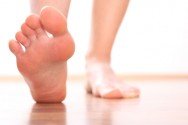 Working out at the gym can be one important way to maintain good physical health. When exercising in public places, however, there is always an elevated risk of coming into contact with bacteria and viruses that are new to our own personal immune system. Plantar warts are one of the conditions that might crop up when someone is exposed to warm, humid environments. Caused by HPV (human papillomavirus), plantar warts appear as hard, callus like areas on the foot. They can be very painful when even walking around normally. There are various procedures for this condition that range from surgery to laser treatments; consult with your podiatrist to determine the best treatment for you.
Working out at the gym can be one important way to maintain good physical health. When exercising in public places, however, there is always an elevated risk of coming into contact with bacteria and viruses that are new to our own personal immune system. Plantar warts are one of the conditions that might crop up when someone is exposed to warm, humid environments. Caused by HPV (human papillomavirus), plantar warts appear as hard, callus like areas on the foot. They can be very painful when even walking around normally. There are various procedures for this condition that range from surgery to laser treatments; consult with your podiatrist to determine the best treatment for you.
Plantar warts can be very uncomfortable. If you need your feet checked, contact one of our podiatrists of University Foot and Ankle Center, L.L.C. Our doctors can provide the care you need to keep you pain-free and on your feet.
About Plantar Warts
Plantar warts are the result of HPV, or human papillomavirus, getting into open wounds on the feet. They are mostly found on the heels or balls of the feet.
While plantar warts are generally harmless, those experiencing excessive pain or those suffering from diabetes or a compromised immune system require immediate medical care. Plantar warts are easily diagnosed, usually through scraping off a bit of rough skin or by getting a biopsy.
Symptoms
- Legions on the bottom of your feet, usually rough and grainy
- Hard or thick callused spots
- Wart seeds, which are small clotted blood vessels that look like little black spots
- Pain, discomfort, or tenderness of your feet when walking or standing
Treatment
- Freezing
- Electric tool removal
- Laser Treatment
- Topical Creams (prescription only)
- Over-the-counter medications
To help prevent developing plantar warts, avoid walking barefoot over abrasive surfaces that can cause cuts or wounds for HPV to get into. Avoiding direct contact with other warts, as well as not picking or rubbing existing warts, will help prevent the further spread of plantar warts. However, if you think you have developed plantar warts, speak to your podiatrist. He or she can diagnose the warts on your feet and recommend the appropriate treatment options.
If you have any questions please contact our offices located in East Brunswick and Monroe Township, NJ. We offer the newest diagnostic and treatment technologies for all your foot and ankle needs.
How to Get Rid of Athlete’s Foot
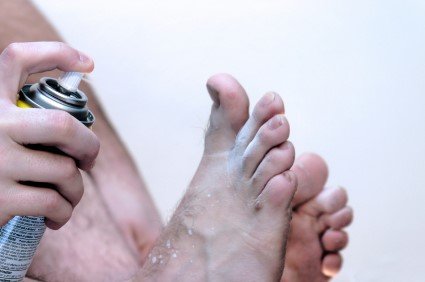 Odor emanates from people’s feet due to sweat or a lack of good hygiene practices. Bacteria can form as a result of either of these two reasons, and it may produce a strong odor. They tend to form around areas that are moist on your feet, and they feed on skin oils and dead cells. When bacteria thrive, they eliminate waste in the form of organic acids, which causes feet to smell. In order to keep your feet bacteria free, you should change your socks daily, keep your toenails clipped and clean, dry feet thoroughly after showering, and swab in between your toes with rubbing alcohol.
Odor emanates from people’s feet due to sweat or a lack of good hygiene practices. Bacteria can form as a result of either of these two reasons, and it may produce a strong odor. They tend to form around areas that are moist on your feet, and they feed on skin oils and dead cells. When bacteria thrive, they eliminate waste in the form of organic acids, which causes feet to smell. In order to keep your feet bacteria free, you should change your socks daily, keep your toenails clipped and clean, dry feet thoroughly after showering, and swab in between your toes with rubbing alcohol.
Athlete’s foot is an inconvenient condition that can be easily reduced with the proper treatment. If you have any concerns about your feet and ankles, contact one of our podiatrists from University Foot and Ankle Center, LLC. Our doctors can provide the care you need to keep you pain-free and on your feet.
Athlete’s Foot: The Sole Story
Athlete's foot, also known as tinea pedis, can be an extremely contagious foot infection. It is commonly contracted in public changing areas and bathrooms, dormitory style living quarters, around locker rooms and public swimming pools, or anywhere your feet often come into contact with other people.
Solutions to Combat Athlete’s Foot
- Hydrate your feet by using lotion
- Exfoliate
- Buff off nails
- Use of anti-fungal products
- Examine your feet and visit your doctor if any suspicious blisters or cuts develop
Athlete’s foot can cause many irritating symptoms such as dry and flaking skin, itching, and redness. Some more severe symptoms can include bleeding and cracked skin, intense itching and burning and even pain when walking. In the worst cases, athlete’s foot can cause blistering as well. Speak to your podiatrist for a better understanding of the different causes of athlete’s foot, as well as helping you figure out which treatment options are best for you.
If you have any questions, please feel free to contact our offices located in East Brunswick and Monroe Township, NJ. We offer the newest diagnostic tools and technologies to treat your foot and ankle needs.
How to Look for the Right Sneakers
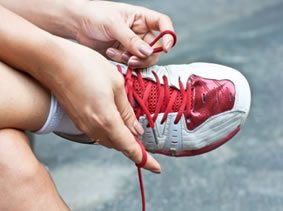 Sneakers are arguably the most important piece of equipment for an athlete. You should always be sure to get rid of shoes that are “past their prime.” Shoes that need to be thrown out will have a loss of counter support and a worn out midsole. When shopping for new shoes, you should look for ones that fit properly. The rule of thumb for shoe shopping is to allow for at least one finger’s width from the end of the longest toe to the top of the shoe.
Sneakers are arguably the most important piece of equipment for an athlete. You should always be sure to get rid of shoes that are “past their prime.” Shoes that need to be thrown out will have a loss of counter support and a worn out midsole. When shopping for new shoes, you should look for ones that fit properly. The rule of thumb for shoe shopping is to allow for at least one finger’s width from the end of the longest toe to the top of the shoe.
Finding a properly-fitting shoe is important in reducing injuries and preventing foot problems. For more information about treatment, contact one of our podiatrists of University Foot and Ankle Center, L.L.C. Our doctors can provide the care you need to keep you pain-free and on your feet.
Proper Shoe Fitting
A common concern when it comes to foot health, having properly fitted shoes can help prevent injuries to the foot. Out feet affect our posture and gait, which in turn affects the biomechanics and overall bodily structure. With 33 joints, 26 bones, and over 100 ligaments, the potential for serious injury is much greater than one realizes. Although the feet cease growth in adulthood, they still change shape as they mature. Here are some factors to consider when it comes to investing in proper fitting shoes:
- Be sure the shoes fit correctly right away
- Ensure the ball of your foot fits comfortably in the widest portion of the shoes
- Even though they may look fashionable, improper fitting shoes can either create adverse conditions or exacerbate existing ones you may already have
- Walk along a carpeted surface to ensure the shoes comfortably fit during normal activity
Keeping in mind how shoes fit the biomechanics of your body, properly-fitting shoes are vitally important. Fortunately, it is not difficult to acquire footwear that fits correctly. Be sure to wear shoes that support the overall structure of your body. Do your feet a favor and invest in several pairs of well-fitted shoes today.
If you have any questions, please feel free to contact our offices located in East Brunswick and Monroe Township, NJ. We offer the newest diagnostic tools and technology to treat your foot and ankle needs.
Read more about proper shoe fitting.
Plantar Fasciitis and Heel Pain
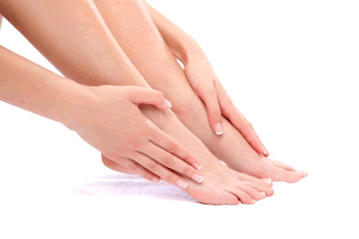 Approximately “4% to 7% of the population experiences heel pain,” and 80% of that percentage suffers from plantar fasciitis, a primary cause behind heel pain. Pain from plantar fasciitis happens suddenly, especially in the morning and after pressure is exerted on the heel bone. According to Dr. Marc Legere, who specializes in sports and physical medicine, muscle weakness in the muscles that support the arch of the foot as well as improper gait can both lead to the development of plantar fasciitis as the plantar fascia is pulled on.
Approximately “4% to 7% of the population experiences heel pain,” and 80% of that percentage suffers from plantar fasciitis, a primary cause behind heel pain. Pain from plantar fasciitis happens suddenly, especially in the morning and after pressure is exerted on the heel bone. According to Dr. Marc Legere, who specializes in sports and physical medicine, muscle weakness in the muscles that support the arch of the foot as well as improper gait can both lead to the development of plantar fasciitis as the plantar fascia is pulled on.
Plantar fasciitis can be very painful and inconvenient. If you are experiencing heel pain or symptoms of plantar fasciitis, contact one of our podiatrists of University Foot and Ankle Center, L.L.C. Our doctors can provide the care you need to keep you pain-free and on your feet.
What is Plantar Fasciitis?
Plantar fasciitis is the inflammation of the thick band of tissue that runs along the bottom of your foot, known as the plantar fascia, and causes mild to severe heel pain.
What Causes Plantar Fasciitis?
· Excessive running
· Non-supportive shoes
· Overpronation
· Repeated stretching and tearing of the plantar fascia
How Can It Be Treated?
· Conservative measures – anti-inflammatories, ice packs, stretching exercises, physical therapy, orthotic devices
· Shockwave therapy – sound waves are sent to the affected area to facilitate healing and are usually used for chronic cases of plantar fasciitis
· Surgery – usually only used as a last resort when all else fails. The plantar fascia can be surgically detached from the heel
While very treatable, plantar fasciitis is definitely not something that should be ignored. Especially in severe cases, speaking to your doctor right away is highly recommended to avoid complications and severe heel pain. Your podiatrist can work with you to provide the appropriate treatment options tailored to your condition.
If you have any questions please contact our office located in East Brunswick and Monroe Township, NJ. We offer the newest diagnostic and treatment technologies for all your foot and ankle needs.
Increasing Number of Diabetic Amputations
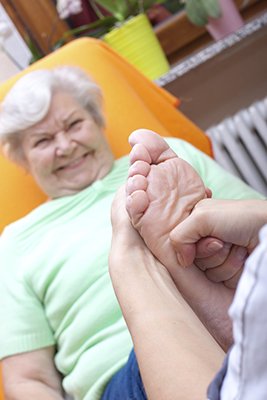 Information from the International Diabetes Federation revealed that each year a great number of diabetic patients undergo amputation of the leg. Proper foot health education may prevent the need of amputations among diabetics. It is also important to perform daily feet checks, keep your feet clean and moisturized, wear proper footwear, and visit your podiatrist regularly.
Information from the International Diabetes Federation revealed that each year a great number of diabetic patients undergo amputation of the leg. Proper foot health education may prevent the need of amputations among diabetics. It is also important to perform daily feet checks, keep your feet clean and moisturized, wear proper footwear, and visit your podiatrist regularly.
Diabetic foot care is important in preventing foot ailments such as ulcers. If you are suffering from diabetes or have any other concerns about your feet, contact one of our podiatrists of University Foot and Ankle Center, L.L.C. Our doctors can provide the care you need to keep your pain free and on your feet.
Diabetic Foot Care
Diabetes affects millions of people every year. Diabetes can damage blood vessels in many parts of the body, including the feet. Because of this, taking care of your feet is essential if you have diabetes, and having a podiatrist help monitor your foot health is highly recommended.
The Importance of Caring for Your Feet
- Routinely inspect your feet for bruises or sores.
- Wear socks that fit your feet comfortably.
- Wear comfortable shoes that provide adequate support.
Patients with diabetes should have their doctor monitor their blood levels because blood sugar levels play such a huge role in diabetic care. Monitoring these levels on a regular basis is highly advised.
It is always best to inform your healthcare professional of any concerns you may have regarding your feet, especially for diabetic patients. Early treatment and routine foot examinations are keys to maintaining proper health, especially because severe complications can arise if proper treatment is not applied.
If you have any questions please feel free to contact one of our offices located in East Brunswick and Monroe Township, NJ. We offer the newest diagnostic and treatment technologies for all your foot and ankle needs.
Blog Archives
- May 2024
- April 2024
- March 2024
- February 2024
- January 2024
- December 2023
- November 2023
- October 2023
- September 2023
- August 2023
- July 2023
- June 2023
- May 2023
- April 2023
- March 2023
- February 2023
- January 2023
- December 2022
- November 2022
- October 2022
- September 2022
- August 2022
- July 2022
- June 2022
- May 2022
- April 2022
- March 2022
- February 2022
- January 2022
- December 2021
- November 2021
- October 2021
- September 2021
- August 2021
- July 2021
- June 2021
- May 2021
- April 2021
- March 2021
- February 2021
- January 2021
- December 2020
- November 2020
- October 2020
- September 2020
- August 2020
- July 2020
- June 2020
- May 2020
- April 2020
- March 2020
- February 2020
- January 2020
- December 2019
- November 2019
- October 2019
- September 2019
- August 2019
- July 2019
- June 2019
- May 2019
- April 2019
- March 2019
- February 2019
- January 2019
- December 2018
- November 2018
- October 2018
- September 2018
- August 2018
- July 2018
- June 2018
- May 2018
- April 2018
- March 2018
- February 2018
- January 2018
- December 2017
- November 2017
- October 2017
- September 2017
- August 2017
- July 2017
- June 2017
- May 2017
- April 2017
- March 2017
- February 2017
- January 2017
- December 2016
- November 2016
- October 2016
- September 2016
- August 2016
- July 2016
- June 2016
- May 2016
- April 2016
- March 2016
- February 2016
- January 2016
- December 2015
- November 2015
- October 2015
- September 2015
- August 2015
- July 2015
- June 2015
- May 2015
- April 2015
- March 2015
- February 2015
- January 2015
- December 2014
- November 2014
- October 2014
- September 2014
- August 2014
- July 2014




